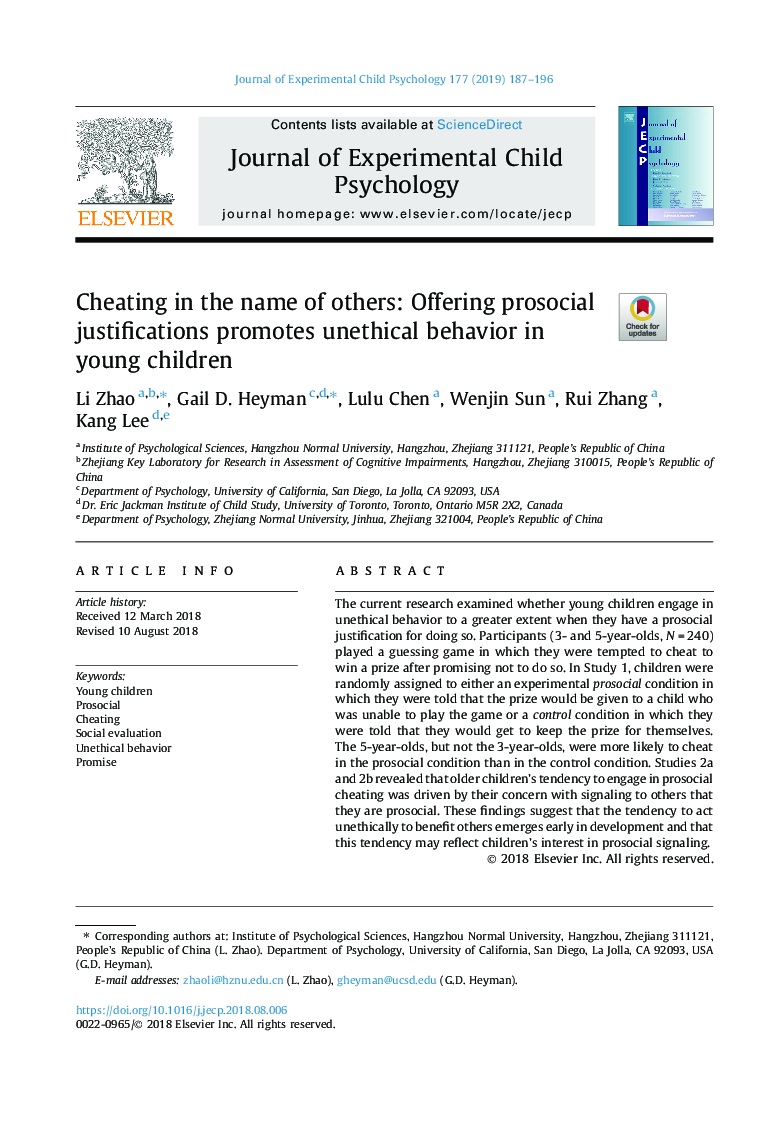| Article ID | Journal | Published Year | Pages | File Type |
|---|---|---|---|---|
| 10140344 | Journal of Experimental Child Psychology | 2019 | 10 Pages |
Abstract
The current research examined whether young children engage in unethical behavior to a greater extent when they have a prosocial justification for doing so. Participants (3- and 5-year-olds, Nâ¯=â¯240) played a guessing game in which they were tempted to cheat to win a prize after promising not to do so. In Study 1, children were randomly assigned to either an experimental prosocial condition in which they were told that the prize would be given to a child who was unable to play the game or a control condition in which they were told that they would get to keep the prize for themselves. The 5-year-olds, but not the 3-year-olds, were more likely to cheat in the prosocial condition than in the control condition. Studies 2a and 2b revealed that older children's tendency to engage in prosocial cheating was driven by their concern with signaling to others that they are prosocial. These findings suggest that the tendency to act unethically to benefit others emerges early in development and that this tendency may reflect children's interest in prosocial signaling.
Related Topics
Social Sciences and Humanities
Psychology
Developmental and Educational Psychology
Authors
Li Zhao, Gail D. Heyman, Lulu Chen, Wenjin Sun, Rui Zhang, Kang Lee,
